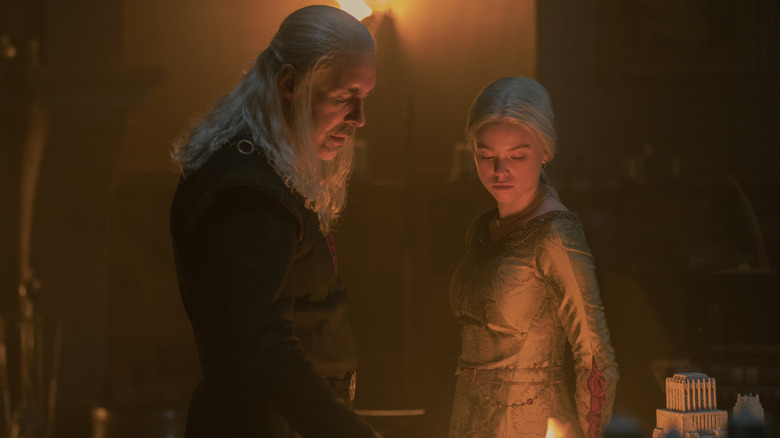
Ollie Upton / HBO
If you're a fan of "Game of Thrones," its prequel and spin-off "House of the Dragon," or author George R.R. Martin's work, you're probably familiar with a prophecy in Martin's "A Song of Ice and Fire" series concerning a mysterious figure called "the prince that was promised." This prophecy is the center of many, many plotlines across both TV shows, "A Song of Ice and Fire," and the Targaryen family history "Fire & Blood." So, what does the prophecy say, and who is "the prince that was promised?"
The answer is much, much more complicated than you think, if I'm being quite honest. Not only is it particularly unclear who, exactly, "the prince that was promised" even is, but characters in "House of the Dragon" and "Game of Thrones" wildly misinterpret — and manipulate — the prophecy to suit their own needs so frequently that, by the end of the narrative of "Game of Thrones," there are multiple candidates for this mysterious role. Here's everything that you need to know about "the prince that was promised," what it has to do with the Azor Ahai prophecy, and how it all turns out.
Where did the 'prince that was promised' prophecy come from?
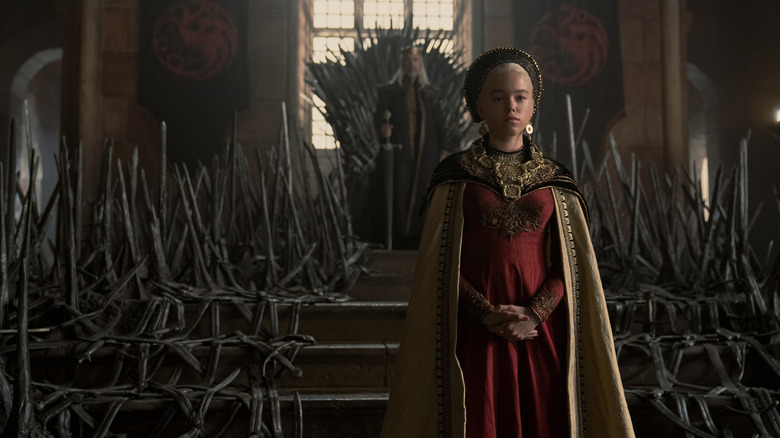
Ollie Upton/HBO
Within the universe George R.R. Martin created, it's never specified who came up with the prophecy of "the prince that was promised," although a lot of people definitely take the opportunity to claim that they are said prince. What we do know is it's based in a religion that celebrates the Lord of Light and that "the prince that was promised" would wield a sword named Lightbringer and wake dragons from stone. There's also the matter of this mystery person's birth — specifically, under what conditions and circumstances the person was born. In "A Storm of Swords," the third book in "A Song of Ice and Fire," the Red Priestess Melisandre (played by Carice Van Houten on "Game of Thrones") says, "When the red star bleeds and the darkness gathers, Azor Ahai shall be born again amidst smoke and salt." (I'll circle back to the whole "Azor Ahai" thing in due time.) In the fourth book, "A Feast for Crows," Archmaester Marwyn, who resides in the Citadel, says that "the prince that was promised" was "born amidst salt and smoke, beneath a bleeding star." Another important thing to keep in mind is that "the prince that was promised" doesn't have to be a prince, per se ... it could be a princess. In its original high Valyrian, the word for "prince" is gender-neutral, which certainly widens the field of competitors here.
The prophecy first takes shape in the books — and in "House of the Dragon" — as Targaryens recall a prophetic dream of Aegon the Conqueror, in which he saw the White Walkers and foretold the dangers of the far North (and an endless winter). Unfortunately for King Viserys I Targaryen, played onscreen by Paddy Considine, his intentions regarding the prophecy go totally awry, causing war to break out.
King Viserys believed his heir was 'the prince that was promised' - but his message was misunderstood
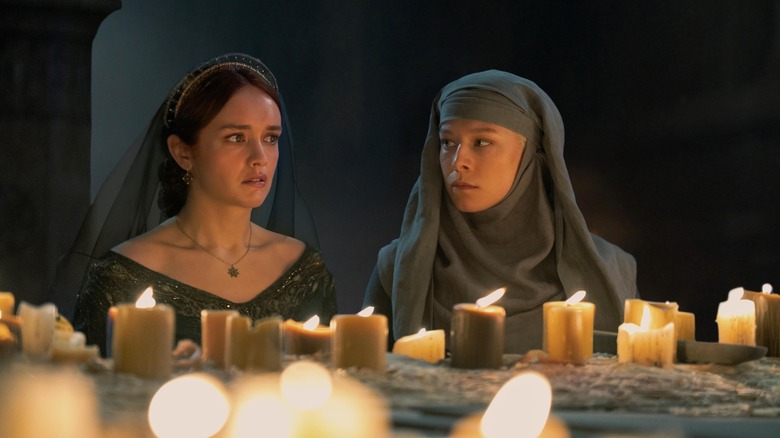
Ollie Upton/HBO
In the very first episode of "House of the Dragon," Viserys loses his wife Aemma (Sian Brooke) and newborn son in childbirth, at which point he realizes he has no choice but to name his only child, Princess Rhaenyra Targaryen (played as a teenager by Milly Alcock), as his heir. Before making the formal declaration, Viserys takes his daughter aside, apologizes for his delay in naming her the trueborn heir to the Iron Throne, and tells her about Aegon the Conqueror's dream, which he calls "a song of ice and fire." Viserys, like many other Targaryens, believes that a Targaryen must sit the Iron Throne to protect the realm from the dangers Aegon saw in his sleep, and Rhaenyra leaves the conversation with a full understanding of her father's wishes.
This all goes very, very wrong at the end of season 1 when, on Viserys' deathbed, the terminally ill king whispers the name "Aegon" to his much-younger wife and Rhaenyra's former best friend Queen Alicent Hightower (Olivia Cooke). Because there are only, like, four names in the Seven Kingdoms at this point, Alicent assumes that her dying husband is talking about her son, Aegon II Targaryen, who was named for the Conqueror; Viserys, based on everything he's said and done up until this point, is talking about the prophecy and reiterating his support for Rhaenyra (now played by Emma D'Arcy). Despite a confrontation between Alicent and Rhaenyra in season 2 where Alicent reveals Viserys' last words — and Rhaenyra realizes their real meaning — this confusion over a name is precisely how the Dance of the Dragons, the brutal civil war amongst the Targaryen family for control of the Iron Throne, begins.
Is Azor Ahai the same as 'the prince that was promised?'
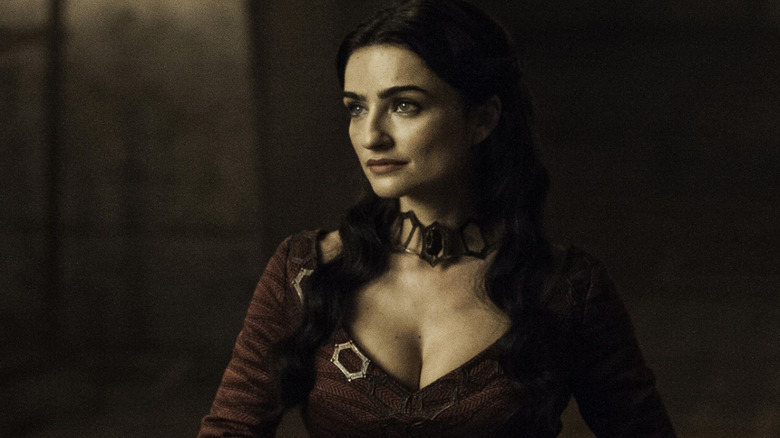
Helen Sloan/HBO
In "Game of Thrones," Melisandre and other red priestesses — including Kinvara, briefly played by Ania Bukstein in season 6 — throw around the term "Azor Ahai" pretty liberally. So, is it the same as "the prince that was promised?" Sort of.
Melisandre also tends to mention "Azor Ahai" and "the prince that was promised" in the same breath, but to be clear, Azor Ahai, by all accounts, is a legendary hero from the past and not necessarily the focus of any prophecies. Tales of Azor Ahai came from towns like Asshai and Essos, and like "the prince that was promised," he's said to have carried a mythical sword called Lightbringer, and Melisandre does tell Jon Snow (played onscreen by Kit Harington) that Azor Ahai will be "born again amidst smoke and salt to wake dragons out of stone" in the fifth book in "A Song of Ice and Fire," itself titled "A Dance of Dragons." This sounds suspiciously like the way "the prince that was promised" is supposed to be born, so there's certainly overlap here, but the point seems to be that the legends of both Azor Ahai and "the prince that was promised" respectively have gone through many, many games of Westerosi telephone.
The contenders for 'the prince that was promised' in Game of Thrones
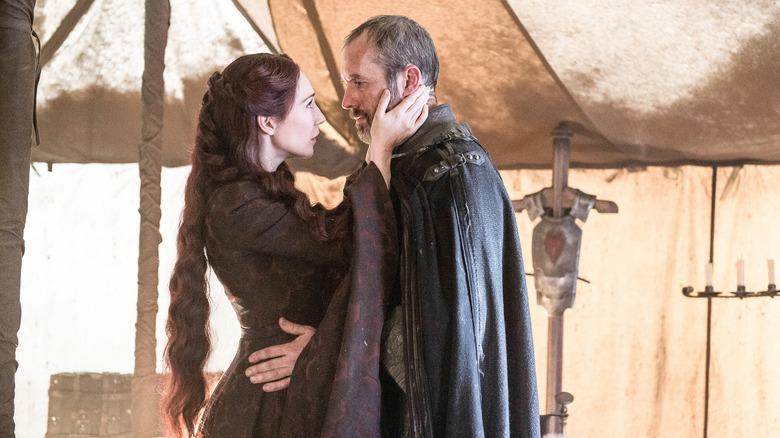
Helen Sloan/HBO
Throughout the first five seasons of "Game of Thrones," Melisandre is pretty firm about the identity of "the prince that was promised." In fact, she's insistent, to a fault, that it's Stannis Baratheon, played by Stephen Dillane. As the younger brother of King Robert Baratheon (Mark Addy), who dies in season 1, Stannis is, realistically, the heir to the Iron Throne (when you recall that all of Robert's children aren't his), but he's a frankly unpopular and uninspiring candidate for "the prince that was promised" during his campaign. Melisandre ultimately has to admit defeat when Stannis sacrifices his daughter to the Lord of Light and loses a major battle anyway, and when he's slain by Brienne of Tarth (Gwendoline Christie), Melisandre shifts her focus.
So, where does her focus land? Upon Jon Snow, largely because she revives him from death at the beginning of season 6 and starts to believe that the Lord of Light "allowed" Jon to return to the realm of the living for a reason. There's another pretty viable candidate out there, though: Daenerys Targaryen (Emilia Clarke), colloquially known as "the Mother of Dragons," who did manage to "wake dragons from stone" (when she walked into a funeral pyre with three dragon eggs and emerged, alive, with three baby dragons in season 1). So, now we're down to Daenerys and Jon. Are either of them "the prince that was promised?"
After Stannis, only two possibilities remain for 'the prince that was promised'
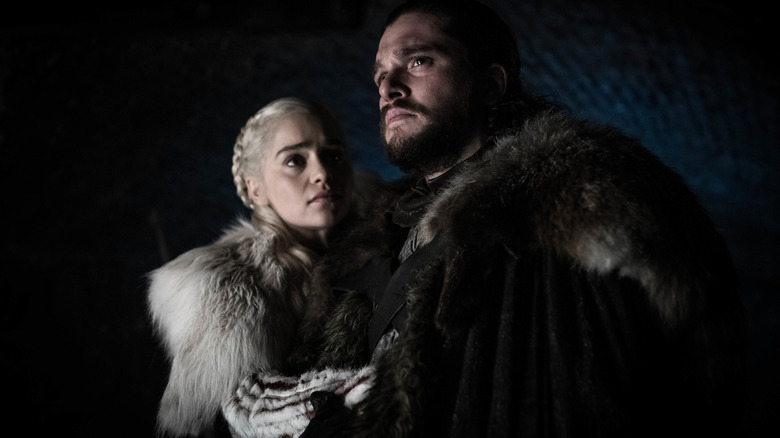
Helen Sloan/HBO
After Stannis meets a gruesome end in the season 5 finale "Mother's Mercy," Melisandre travels to Castle Black and revives Jon two episodes into season 6. (In case you forgot, he was stabbed by his fellow Night's Watchmen after he teamed up with wildlings and they felt betrayed.) Jon, at that point, decides his "watch has ended" and walks away from the Night's Watch all together, returning to Winterfell to reunite with his supposed half-sister Sansa (Sophie Turner) and half-brother Bran (Isaac Hempstead-Wright) and defeat the awful Ramsay Bolton (Iwan Rheon) during the Battle of the Bastards. In terms of becoming a legendary knight, Jon is, by all appearances, well on his way; he's also one of two characters to actually defeat a White Walker on screen (the other is John Bradley's Samwell Tarly, who sort of does it by accident).
As for Daenerys, she spends quite a lot of "Game of Thrones" traveling through cities across the Narrow Sea and freeing them from enslavers (a move that leads to a few open rebellions against the dragon queen), and it's still reasonable to assume that, as one of the only known Targaryens in the world, she could be "the prince that was promised." Here's the problem, though: Jon is a secret Targaryen and the product of a legitimate marriage between Daenerys' late brother Rhaegal and Lyanna Stark, sister of Jon's adoptive father Ned Stark (Sean Bean). Unfortunately for the narrative of "Game of Thrones," season 8 comes along and decides that neither Jon nor Daenerys is "the prince that was promised."
Someone unexpected fulfills the prophecy (sort of) in Game of Thrones
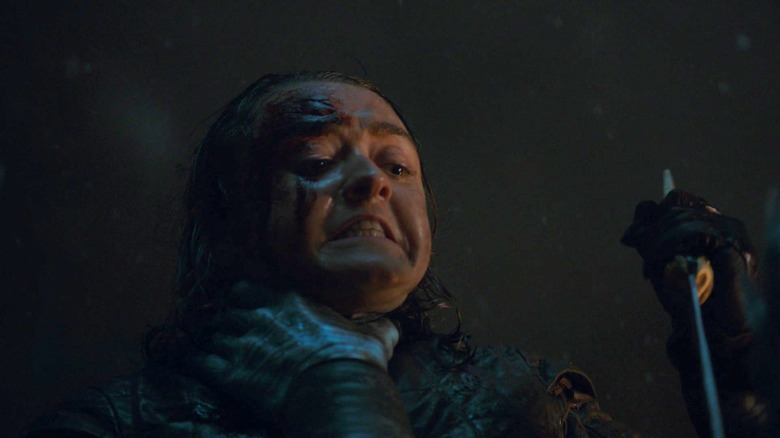
HBO
In the third episode of the eighth and final (albeit abbreviated) season of "Game of Thrones," titled "The Long Night," we finally get to see the long-awaited Battle of Winterfell, where the remaining characters team up to fight the Night King (Vladimir Furdik) and try to take down his army once and for all. Jon and Daenerys are, naturally, on the battlefield, whether they're on dragonback attempting to barbecue the Night King and his cronies from above or facing them head on. During the fight, though, someone else emerges from the darkness (and I do mean that literally because this entire episode is shot in the lowest possible light) — Arya Stark, Jon's presumed half-sister played by Maisie Williams.
Melisandre corners Arya during the battle to remind her of a half-baked "prophecy" she made when she first met Arya in season 3, saying she would, essentially, shut eyes of many colors; during the battle of Winterfell, Melisandre brings up the "blue" eyes, which seems to be the "Game of Thrones" creative team's way of retconning the entire situation so that Arya can go forth and kill the Night King. She does exactly that by using a Valyrian steel dagger with Aegon's prophecy of "a song of ice and fire" engraved upon it, which has changed hands many, many times in Westeros. It's a cool moment, sure, but it's also sort of incredibly ridiculous, because narratively, it's unsatisfying to give the show's most important kill to a character who has no history whatsoever with the Night King. (Jon should have done it; it's the boring choice, but it's also the one that provides some actual payoff to seven seasons' worth of setup.) Arya is never confirmed to be "the prince that was promised" one way or the other, but she's the one to slay the Night King — and this is just one example of the many, many prophecies that never got resolved on "Game of Thrones."
'The prince that was promised' is one of many unresolved Game of Thrones plotlines
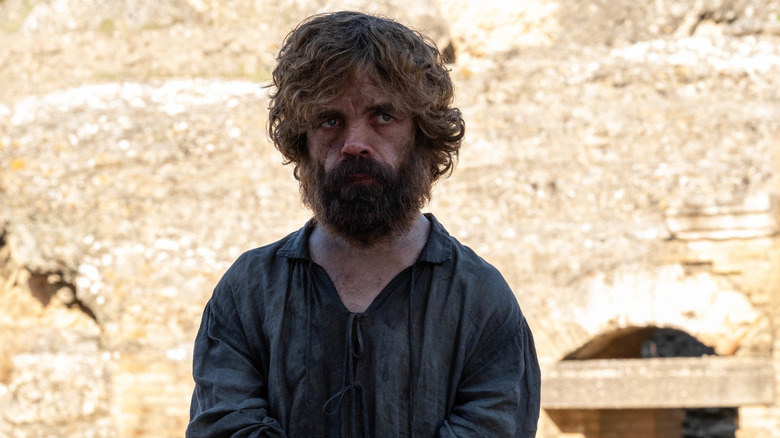
Macall B. Polay/HBO
"The prince that was promised" is one of many, many dangling plot threads in "Game of Thrones" that never really gets resolved. In terms of plotlines that directly center around Arya, it's not even the only one of those, considering that Arya's list of intended murder victims remains unfinished at the end of the series (yes, most of them die, but not at Arya's hands). It's also one of many abandoned storylines focusing on Jon, whose parentage — and status as a legitimate male Targaryen, which technically entitles him to the Iron Throne over Daenerys — never actually matters at the end of the day.
Yes, it's unsatisfying that we never find out who "the prince that was promised" was supposed to be. It's also unsatisfying that the entire "valonqar" plotline from the books, where Cersei Lannister (Lena Headey) is told by a witch that she'll be killed by her "valonqar" or younger brother — which could refer to her younger brother Tyrion (Peter Dinklage) or her slightly younger twin Jaime (Nikolaj Coster-Waldau) — remains off-screen. Daenerys' entire journey to Westeros and quest for the Iron Throne also has a deeply disagreeable ending, in that she uses her dragon to commit a full-blown genocide in King's Landing because she's in a bad mood and then gets stabbed by her uncle/lover Jon before she can become queen. This is all to say that if you're going to be mad about "the prince that was promised," there are plenty of abandoned prophecies and plotlines to be mad about too.
If George R.R. Martin ever finishes the next book in "A Song of Ice and Fire," titled "The Winds of Winter," maybe we'll get an answer about "the prince that was promised." In the meantime, "Game of Thrones" is on Max now.

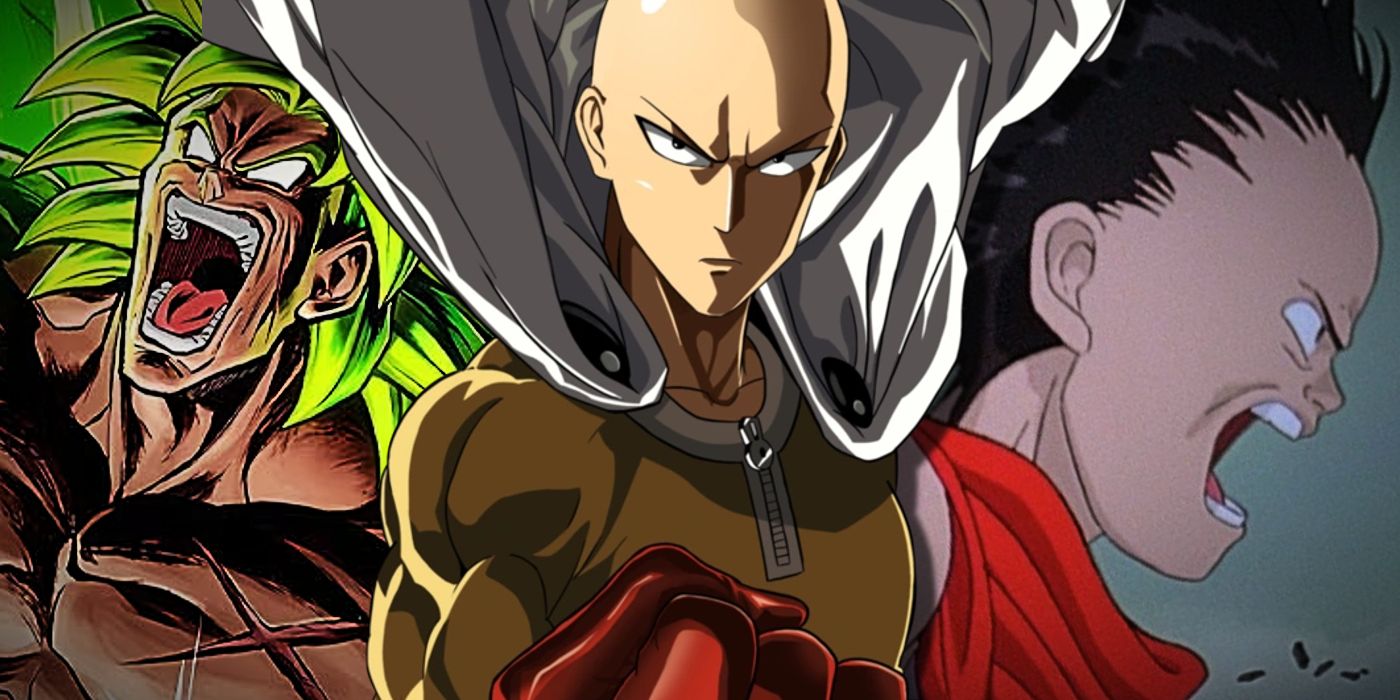







 English (US) ·
English (US) ·